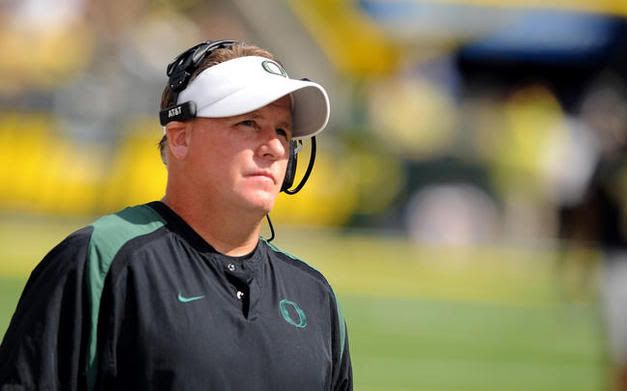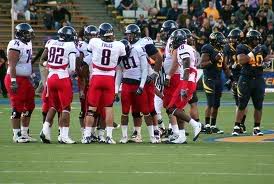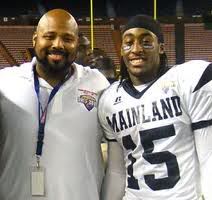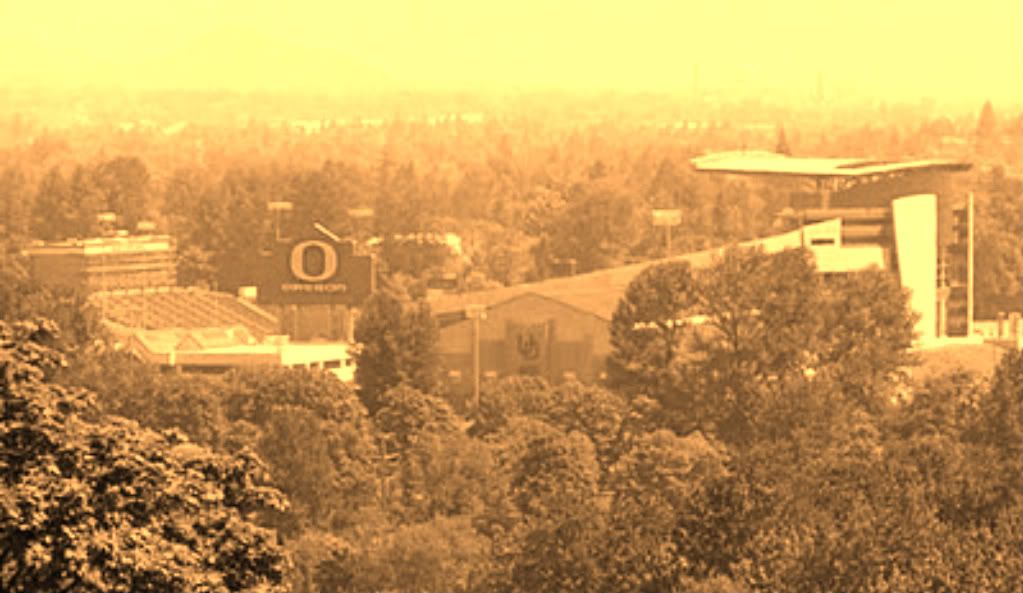Opinion: In The Hands of Man
“Everything is good as it leaves the hands of the Author of things; everything degenerates in the hands of man.” From a simple statement grows a strong opinion about the state of athletics and our places as fans. The pressure of winning is intense; more now than ever. Coaches are paid exorbitant amounts of money to do just that; win. And we cheer for them to win. We hope that whatever it takes to win is legitimate enough to not cause real trouble. And when we roll in the mud with hogs, we are bound to get some dirt under our nails. Everything degenerates in the hands of man.

Breaking Down Match-Ups
Each week during the season, I will take the time to break down the match-ups at each position group for both the Ducks and their opponent. A unique look at which team has the edge at each position as well as an overall preview of the match-ups.

Feature Articles
Every week I will bring new feature articles for the reader to get to know the Duck Empire just a little better. The Duck Empire is vast and complex, these stories will bring you inside the lives of other Duck fans.

Exclusive Stories
We are always working to bring you breaking news and exclusive stories. The Other Side of Duck was the only Oregon member to interview Lache Seastrunk after his transfer. We are working on future exclusive stories and will work non-stop to bring you the very latest news.

The Other Side Of Duck
We are here to bring you a side of Duck sports that no one else brings. There are two sides to every story, our goal is to bring you the side of the story less discussed. In addition, we will continue to provide more content than responses to other stories. Original content, exclusive interviews, strong opinions and feature articles.

Thursday, July 31, 2014
Brian's fate
Wednesday, July 30, 2014
First to third: A new inspiration
As I sat in silent contemplation of all that had occurred in one hazy semi-drunk act of lust the night before, I flashed back in time. Suddenly my mind felt the isolation of a young boy; 12 years old.There, the first time you will see "current" writing or thoughts from the project. From that simple beginning I was able to expand on certain feelings of isolation I had been looking to add to the character. Isolated on the inside, not so much on the outside....
I was looking for a good transition to end chapter 2, which I have conceived and it should work out well. It will involve some more in-depth research, but it will be a good transition...
As I was contemplating this move, something hit me... start mixing in third person narrative. So far, through about 11,000 words, the project has been a first person recollection. Now I plan to work on mixing in third person; how others see the character from outside counter imposed right on top of how he sees himself.
It will make some of the story tough to weave together, but I hope to add a layer of complexity which also gives a deeper understanding of the character.
Tuesday, July 29, 2014
Baring the soul
One thing I learned which I really like doing is using Faulkner's "stream of consciousness" approach. Now, to be fair, I cannot play as loose with the rules of grammar as Faulkner, but using the concept has already allowed me to take the lead character in a direction I had not planned.
A flaw shows up, a major flaw, in the second chapter. There is no great figure in literature who wields his way through life without flaws. The journey is not worth reading about if everything is "hunky-dory" in the life of the lead. Sure, maybe there could be strife all around and his character is created by being the only sturdy character involved. But I think the most incredible literary figures were flawed in one way or another.
I want to take my shot at creating a character whose flaws not only define him, but help define ourselves. I am not sure yet that the character will overcome. Sometimes, good people simply cannot live a "Hollywood" ending.
This is best exemplified in Paul Bowles' exceptional piece of literary art "The Sheltering Sky."
Chapter I: A beginning (continued)
Friday, July 25, 2014
Middle of Nothing: A beginning
“Not sure that balls is what it takes. This started because I had nowhere to go, and no one with whom to make the trip. I simply got behind the wheel of my car and started driving,” I confided.




